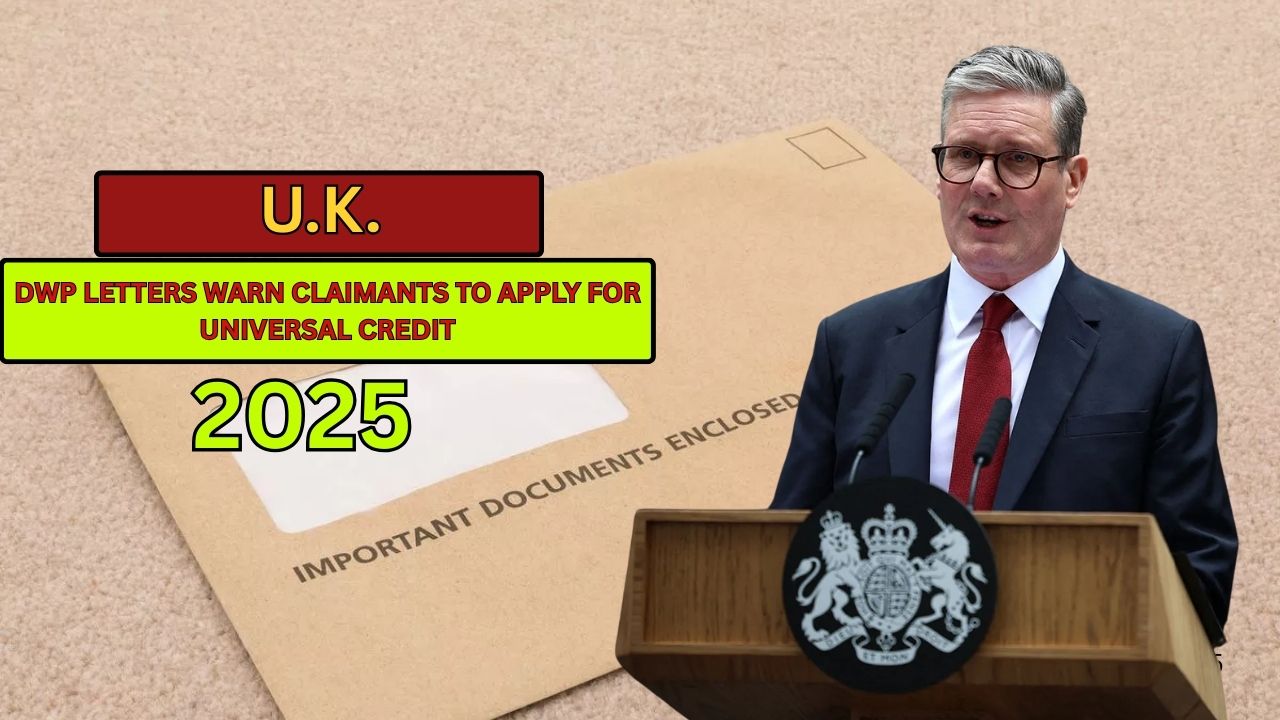The UK government is ramping up efforts to shift legacy benefit claimants onto Universal Credit (UC) through an urgent campaign involving letters from the Department for Work and Pensions (DWP). These official “migration notices” are now arriving on doorsteps across the country, warning people that they must act swiftly to avoid losing their financial support.
This move is part of the DWP’s ongoing “Managed Migration” plan aimed at transitioning all recipients of six older benefits onto the UC system by March 2026. However, the transition is not automatic — recipients must apply for UC themselves within a three-month deadline from receiving the notice.
Which Benefits Are Being Phased Out?
The following six legacy benefits are being gradually replaced by Universal Credit:
- Income-based Jobseeker’s Allowance (JSA)
- Income-related Employment and Support Allowance (ESA)
- Income Support
- Housing Benefit
- Working Tax Credit
- Child Tax Credit
If you’re currently receiving any of these, you are likely to receive a migration notice instructing you to apply for Universal Credit. According to the DWP’s official guidance, claimants have three months from the date of the letter to complete their UC application. If they fail to do so, their legacy benefits will be stopped.
What Happens If You Don’t Respond?
Failure to act means your benefits could be terminated, and you may miss out on “transitional protection” — a temporary financial safety net designed to prevent income drops during the switch to UC. This protection ensures that claimants who are worse off under UC will not experience an immediate cut in payments.
Alarmingly, over 280,000 people have already lost their benefits because they didn’t respond in time, as reported by The Big Issue.
Why the Push for Universal Credit?
The government has long been consolidating multiple benefits into Universal Credit to simplify the welfare system. The DWP’s goal is to complete all transitions by March 2026, and the rollout is accelerating. Currently, around 83,000 migration letters are being issued each month, and the pace will increase so that all legacy benefit recipients are contacted by September 2025, according to The Sun’s coverage.

Financial Impact: Who Gains and Who Loses?
The shift to Universal Credit will affect people differently:
- 1.4 million claimants are expected to be better off
- 300,000 will see no change
- 900,000 may end up worse off, though many of them will qualify for transitional protection
These figures were confirmed in multiple reports from DWP communications and GB News.
Concerns for Vulnerable Claimants
There are growing concerns that the switch to UC could disproportionately affect vulnerable individuals, particularly those with mental health conditions, limited internet access, or disabilities. Advocacy groups such as Turn2us and Citizens Advice have voiced warnings about people slipping through the cracks due to difficulties understanding or responding to the letters.
Charities urge claimants not to ignore the notices and to seek help if needed. The Citizens Advice “Help to Claim” service offers free guidance on navigating the UC application process.
What Should You Do If You Get a DWP Letter?
- Don’t ignore it — You only have three months to act.
- Apply for Universal Credit online at gov.uk/universal-credit.
- Check your eligibility for transitional protection to ensure your income is preserved.
- Seek help from services like Citizens Advice or local welfare support organizations if you’re unsure how to apply.
Final Thoughts
The DWP’s migration effort is one of the most significant reforms to the UK’s welfare system in decades. While the move to Universal Credit may streamline benefit payments, it carries serious risks for those who delay or fail to apply. If you’ve received a letter from the DWP, take it seriously — missing the deadline could mean losing all your current financial support.
This article has been carefully fact-checked by our editorial team to ensure accuracy and eliminate any misleading information. We are committed to maintaining the highest standards of integrity in our content.

Outside of work, he enjoys playing chess, following cricket, and writing short stories. His commitment to integrity and in-depth analysis strengthens OTE News’ mission of providing trustworthy journalism.




